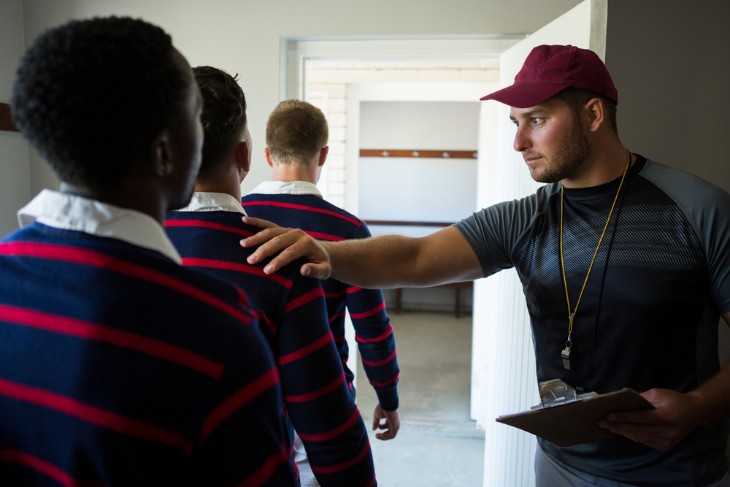- Strategies and Game Plans: The Coach's Blueprint
- Skill Development and Technical Adjustments
- Psychological Support and Mental Toughness Coaching
- The Coach-Captain Relationship: A Strategic Alliance
- Nutrition and Fitness Regimes in Modern Cricket Coaching
- Talent Scouting and Development: The Long-Term Vision
- The Impact of a Coach on Team Morale and Unity
- Utilising Technology: The Coach's New Best Friend
- Successful Coaches and Their Methods
- Conclusion
Cricket, much like any team sport, is not just about the individual brilliance of players but also about the cohesive unit that plays together. The coach plays a pivotal role in binding the team into a single, well-oiled machine. A coach's responsibility transcends mere training; they are instrumental in fostering team spirit and ensuring that all players are aligned with the team's objectives. They create an environment where players can learn, grow, and consistently improve their skills. Coaches also work closely with the captain to ensure that the strategies devised are well understood and executed by the team.
Moreover, coaches bring a wealth of experience and knowledge to the team. They analyse the strengths and weaknesses of not only their own players but also the opposition, providing invaluable insights that help in strategising. A coach's input can be the difference between a well-planned victory and a disorganised defeat. They help in formulating game plans that play to the team's strengths, and at times, their role involves making tough decisions for the greater good of the team, such as changing the batting order or rotating the bowlers.
Historically, the role of the coach in cricket was often understated, with captains taking most of the strategic decisions. However, over the years, the evolution of cricket from a pastime to a highly competitive international sport has necessitated a more professional approach. The modern coach is now an integral part of any cricket team, often bringing a professional and scientific approach to preparation and strategy. This evolution has been marked by an increasing emphasis on analysis, with coaches utilising statistical data to inform decisions and tailor training programmes.
Strategies and Game Plans: The Coach's Blueprint
In the realm of competitive cricket, a coach is often seen as the architect of the team's strategies and game plans. Their ability to read the game and adapt to different conditions and opponents is crucial. Before each match, the coach must consider numerous variables: the condition of the pitch, the weather forecast, and the strengths and weaknesses of the opposition. It is their duty to devise a strategy that maximises their own team's potential while exploiting the opposition's vulnerabilities. This preparation involves detailed discussions with the captain and players, ensuring that everyone understands their role and what is expected of them.
The coach also has to be flexible, ready to alter the game plan in real-time as the match unfolds. This reactive aspect of coaching requires not just tactical acumen but also the ability to remain calm under pressure. It's the coach's guidance during the breaks in play that can turn the tide of a game, offering insights that lead to pivotal decisions on the field. Whether it's adjusting the batting order to counter the opponent's bowling attack or setting an unconventional field to a well-set batsman, the coach's strategic input is invaluable.
Skill Development and Technical Adjustments
Skill development is a continuous process in a cricketer's career, and the coach plays a fundamental role in this aspect. They are responsible for identifying areas for improvement in each player and for implementing individualised training programmes. Technical adjustments can range from minor tweaks in a batsman's stance to a complete overhaul of a bowler's action. The coach must possess a keen eye for detail to spot these technical nuances and the communicative skill to convey the necessary changes effectively to the player.
Additionally, the coach must ensure that the players' skills remain sharp and that they are evolving with the demands of modern cricket. This might involve introducing new shots to a batsman's repertoire or developing a bowler's ability to deliver a variety of deliveries. With the rapid advancement in sports science, coaches also have a host of technological tools at their disposal to aid in this development process. High-speed cameras, motion analysis software, and other training aids are now commonplace, enabling the coach to provide precise and actionable feedback. Through a combination of technical expertise and innovative training methods, the coach ensures that players continue to develop throughout their careers.

Psychological Support and Mental Toughness Coaching
The psychological dimension of cricket is as important as the physical and technical aspects of the game. Coaches are increasingly recognising the need for mental toughness among players to cope with the pressures of international cricket. They provide psychological support, helping players to maintain focus, handle stress, and remain resilient in the face of adversity. This aspect of coaching is about instilling confidence and a positive mindset, which is essential for players to perform at their best.
Coaches may work with sports psychologists to develop tailored mental conditioning programmes. These programmes aim to enhance concentration, boost motivation, and build mental strategies to deal with competition and pressure. Techniques such as visualisation, mindfulness, and cognitive restructuring are employed to prepare players mentally for the game. A coach must also be adept at managing diverse personalities within the team, ensuring that each player's mental and emotional needs are addressed to foster a supportive and cohesive team environment.
The Coach-Captain Relationship: A Strategic Alliance
The synergy between the coach and the captain is crucial for the success of a cricket team. The coach provides a broader perspective, analytical insights, and strategic advice, while the captain translates these plans into action on the field. This relationship is a strategic alliance, built on mutual respect and open communication. The coach and captain must be in sync regarding the team's long-term goals and the tactical approaches to each game.
The coach supports the captain by offering in-depth analyses of the opposition and sharing knowledge that can influence in-match decisions. However, it is the captain who must lead from the front, making split-second decisions in the heat of the match. A good coach empowers the captain, giving them the autonomy to lead while being available to provide guidance and support when needed. This partnership is often the backbone of a successful team, enabling strategic thinking and decisive leadership to coalesce into a formidable cricketing force.
Nutrition and Fitness Regimes in Modern Cricket Coaching
The modern era of cricket demands not only skill and strategy but also peak physical fitness. Coaches are pivotal in establishing rigorous fitness regimes that are tailored to the demands of the sport. They collaborate with fitness trainers and nutritionists to create comprehensive programmes that ensure players can endure the rigours of long matches, often in challenging conditions. Nutrition plays a significant role in this, with coaches overseeing dietary plans that optimise player performance and recovery.
These fitness regimes are not one-size-fits-all; they are customised to suit the individual needs and roles of the players. Fast bowlers, for example, require different conditioning compared to batsmen or spin bowlers. Endurance, strength, flexibility, and agility are all aspects that the coach and their support team must develop in players. The aim is to enhance on-field performance while minimising the risk of injury, thereby extending the players' careers.
Talent Scouting and Development: The Long-Term Vision
Coaches are also instrumental in shaping the future of a cricket team through talent scouting and development. Identifying promising young talent and nurturing their development is a long-term investment that can pay dividends for the team's future success. Coaches often travel to watch domestic matches, work with junior teams, and keep an eye on emerging players who show potential. This talent scouting is a meticulous process, requiring an ability to spot not just current skill but also future potential.
Once identified, the developmental journey begins. Young players are gradually integrated into the team environment, where the coach oversees their progression. This includes not only improving their cricketing skills but also acclimatising them to the culture and ethos of the team. The coach acts as a mentor, guiding these young players through the ranks and preparing them for the pressures of playing at the highest level. It's a process that requires patience and foresight, with the coach playing a key role in moulding the next generation of cricketers.
The Impact of a Coach on Team Morale and Unity
Team morale and unity are intangible but crucial aspects of a cricket team's success. Coaches play a pivotal role in fostering a positive team culture and maintaining team harmony. They are not just instructors but also mentors and motivators. A coach's ability to instil a sense of togetherness and camaraderie among players can be the X-factor in tough situations. They create an environment where players support each other, regardless of individual performance, and where everyone feels valued.
Moreover, coaches are responsible for addressing conflicts and issues within the team. Whether it's a dispute between players or a dip in morale after a series of losses, coaches must be adept at conflict resolution and motivation. Their leadership in such situations can help the team bounce back from setbacks and maintain a winning mentality. Additionally, they ensure that players remain grounded during victories, preventing complacency and maintaining a hunger for success.

Utilising Technology: The Coach's New Best Friend
The use of technology in cricket coaching has seen a revolutionary transformation in recent years. Coaches now have access to a plethora of tools and data-driven insights that aid in training and strategy development. High-speed cameras capture every detail of a player's technique, allowing coaches to identify flaws and suggest improvements with precision. Data analysis tools provide statistics on player performance, helping coaches make informed decisions on team selection and strategy.
One of the most significant technological advancements is the Decision Review System (DRS), which allows teams to challenge on-field decisions. Coaches play a critical role in advising players on when to use the DRS and interpreting the technology's feedback. Additionally, video analysis tools help coaches break down the opposition's strengths and weaknesses, providing valuable insights for game planning. In essence, technology has become the coach's new best friend, enhancing their ability to prepare the team comprehensively and strategically.
Successful Coaches and Their Methods
Throughout the history of cricket, there have been iconic coaches who have left an indelible mark on the sport. One such example is the legendary Australian coach, Sir Donald Bradman. His meticulous approach to batting technique and his ability to inspire discipline among his players contributed significantly to Australia's cricketing success.
Similarly, the tenure of Gary Kirsten as the coach of the Indian cricket team is often cited as a golden era for Indian cricket. Kirsten's calm and composed demeanor, coupled with his focus on player development and mental strength, propelled India to the top of the cricketing world. These case studies highlight the diverse approaches that coaches can employ, underscoring the fact that there is no one-size-fits-all method to coaching. Each coach brings their unique perspective and methodology to the game, making the role of a coach in cricket a dynamic and evolving one.
Conclusion
In conclusion, the importance of a coach in a cricket team cannot be overstated. Their multifaceted role encompasses strategic planning, skill development, mental conditioning, and fostering team unity. Coaches are instrumental in shaping the future of cricket through talent scouting and development. Moreover, the integration of technology has enhanced their capabilities, making them indispensable in the modern game. Successful coaches have left lasting legacies, and their methods serve as valuable case studies for aspiring coaches. In essence, the coach is the unsung hero behind the scenes, driving the team's success and ensuring that cricket continues to thrive as a sport of skill, strategy, and teamwork.
For more information:


